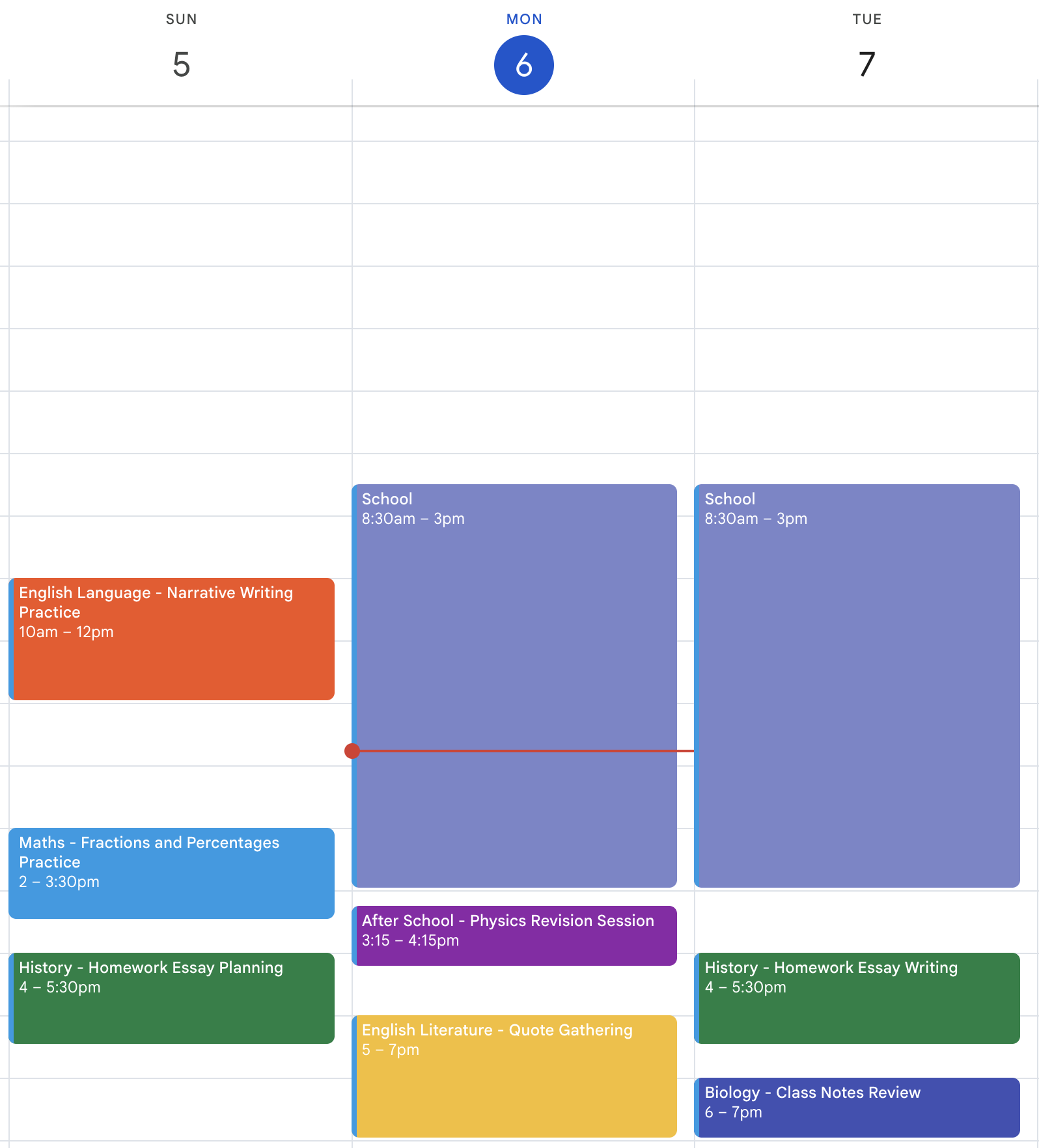Time Blocking: What is it, and how can it help you?
We all know that person who is ‘organised’ and seems to have everything in order. But what exactly does ‘being organised’ mean?
Essentially, being organised means being able to find what you want, when you need it – from socks and shoes, to your sunglasses, right through to notes, deadline dates and study supplies.
Being organised in school makes everything easier and more manageable. When you are studying multiple subjects, as well as juggling hobbies and socialising with friends, it is crucial to know how much time you have, how to utilise it effectively, and where everything is located when you need it.
Fancy some more tips about how to be more productive? Check out our study series on Productivity!
Benefits of being organised:
You will not feel as overwhelmed by the amount of work you need to do
You can achieve more in less time
Organisation gives you a real sense of control over your studies and your time
Time blocking:
Time blocking is used by many students and adults as a way of achieving productivity in a world which is constantly distracting!
The world’s most successful people, including Bill Gates and Jack Dorsey, use time blocking to tackle their huge workloads, breaking up their tasks into as small as 5-minute chunks!
Breaking down the time you have in a day into certain time slots can help you categorise your work and maximise efficiency and productivity.
Time blocking is a time management method which is designed to help you make the most of the time you have by blocking specific time slots for various activities. The main aim of time blocking is to increase your productivity.
Why is time blocking effective?
Time blocking helps limit distractions because you will have a set amount of time for certain tasks, which encourages you to stay focused to finish the task you have begun.
Having a set amount of time (which is a realistic amount of time for the task) will urge you to perform more work quickly. It holds you responsible for your own tasks.
Time blocking also helps you improve your planning and time management skills. It involves continuous scheduling and organising your time to prioritise and work through your work, study and revision.
Not sure where to start? See how Tutti can help improve your studies and boost your grades! Click here.
How do I time block effectively?
Time blocking involves four important stages to help you make the most of it.
1. The planning stage
The planning stage is where you identify your priorities and core tasks for each week.
2. The blocking stage
Once you have received your timetable for your studies and planned out your time in a school homework planner, personal diary, or phone calendar, you will need to block out your free time - after school and on weekends.
Make sure to add in time for meals and rest, and getting to and from school and hobbies.
To do this stage, you need to think about 2 questions:
1. When do you need to block time?
2. How long do those blocks need to be?
Take a look at this example to see how you could block out your time:
3. The acting stage
Once you have blocked out your time, you will then have to do the work that you have blocked out.
To begin with, follow the selected time frame for your tasks, and work your way through your schedule until you are done.
TOP TIP: Life can sometimes be unexpected! We cannot completely control our lives or any tasks and events that might crop up. I usually add in at least half an hour during my day for any unexpected tasks that come up last minute.
You may therefore want to allocate a little time for ‘unexpected’ things too, so you are prepared. These unexpected things can be study tasks, a longer dinner time, or a problem, but having time set aside for the unexpected is a good way to plan ahead.
4. The revision stage
Keeping to your time block strictly in the acting phase will not only help you balance your workload, but you will be able to see where you might need a little longer for certain tasks. That way, you can adjust your time blocking routine until it fits your pace and preferences!
If you allocate too much time to a specific task, you may get distracted waiting for your next block. In the same way, allocating too little time to a task is not helpful either, as you will rush to finish the task, and it will not be to the standard you want.
Put time blocking into practice
While time blocking might initially seem like a really fiddly and time-consuming time management method, it actually gives you a lot of freedom with your own time. You can mould it to your own preferences, scheduling your own time and work.
I’ve often found it really reassuring too. When I have had days that I feel aren’t as productive as I’d like them to be, looking back at my day of time blocking can help me realise that I’ve actually done a lot with my day!
If you have any questions about how to time block, send us your questions! We'd love to hear from you!
Alys Smith


